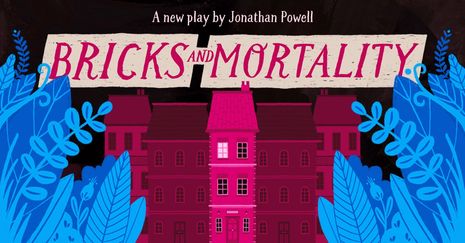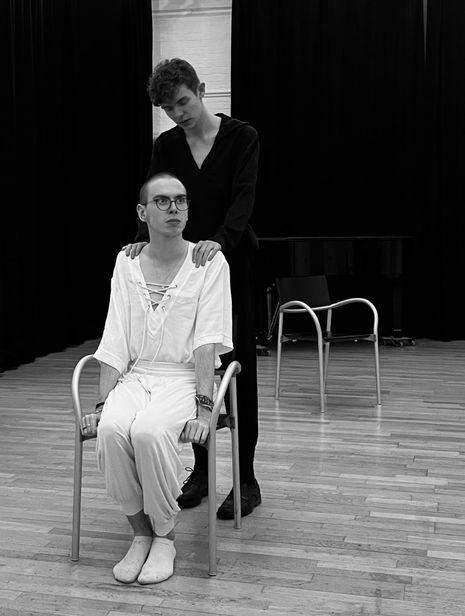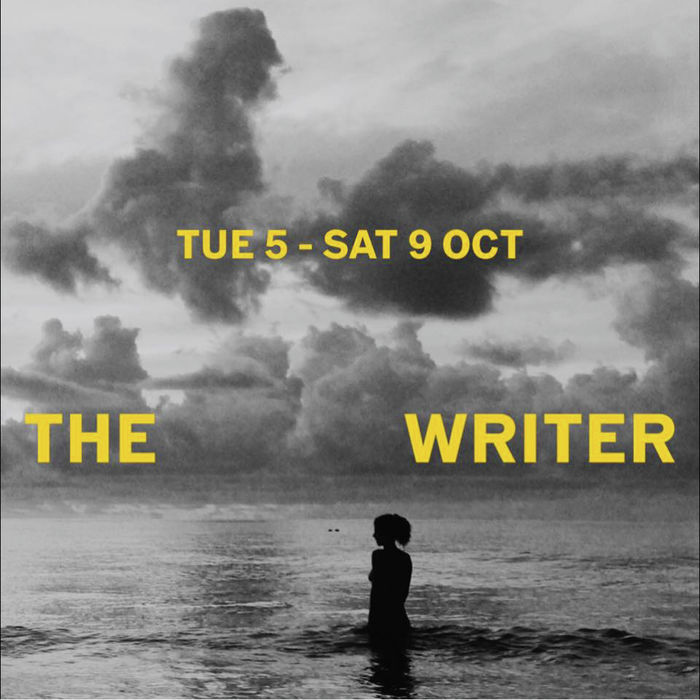‘Come inside, the walls are watching’: Previewing Bricks and Mortality
Writer Jonathan Powell previews his new play Bricks and Mortality, which runs at the Corpus Playroom this week

In the dark dark street there was a dark dark house, and in the dark dark house there was a dark dark forest, and in the dark dark forest there sat a man, and a very dark story indeed…
I’m on the fence about ghosts. Clanking chains, flying books, it’s all a bit too Scooby Doo, isn’t it? But walls, now they’re a different story. I feel very strongly about walls. Because walls, like scraps of paper stuffed between the sofa cushions, they really do listen to the lives once lived within them. Or fragments of lives, at least. And they remember.
Take castles, mansions, prisons – the bread and butter of the haunted house industry. All cynicism aside, I think there’s more to their mass appeal than the entrepreneurial flair of English Heritage. Because not only are these big, old buildings blessed with unparalleled levels of extant history, they are also seats of tremendous pain, of ancestral trauma, of collective memories burned into their bricks and mortar. And in the empty halls, in graffitied masonry and paintings of smiling, unlabelled women, that’s where you find the real ghosts.
In my new play, Bricks and Mortality, the echoes of just such a building have been left alone for a frighteningly long time, and they are more than used to their solitude. As is Gerald (Cian Morey), an ageing hotelier still clinging to his collapsing past, rattling through his hotel corridors and mountains of memorabilia. But when Clearance Officer Martha (Maria Telnikoff) arrives to remove his things and trim the family tree, she discovers what happens when the roots fight back.
“Bricks and Mortality is set to be a wholly immersive experience”
Expertly directed by Kitty Beck and Phil Tarrant, Bricks and Mortality is set to be a wholly immersive experience and a refreshing change from online theatre. As the rainforest creeps in through the bricks and tropical birds whirl overhead, audience and actors alike will lose themselves in Anna Maria-Woodrow’s sound design and the chaotic, shifting world of Gerald’s Historical Hotel. There will be drama, confusion, clarity, tension, and Gregory Miller playing a perpetual drunkard. What’s not to love?
In seeing the hard work of over twenty talented people come together over the last few months to make my fledgling script a reality, I tried to remember how on earth it came about. But like a lifetime reduced to a pile of scattered clothes and keepsakes, there isn’t really an answer. I suppose in part, it came from the death of my grandparents, in sifting through their things and deciding what should stay and what should go. What gave us that right, I thought, to judge and collate their legacy? The law? Precedent? Blood?

And then there were the streets of locked-down Cheltenham, the husks of independent shops boxed in by commercial chains, and the new estates sprouting up across the flood plains. And then there were the trees. I returned to Snowdonia in July, and a favourite forest walk had been flattened into something resembling Mordor. The price of wood skyrocketed. Penguin printed some neat little volumes from XR. Halfway across the world, the spix’s macaw was extinct. We bought a new table for the front room. So it goes.
Spinning plates aside, the heart of the play is – shockingly – mortality. How long do we really live after death? As long as we’re remembered, recognised? Or as long as our ghosts still echo through old paintings, diaries, and the walls? For Gerald, letting a single fragment go would be tantamount to murder. Is he wrong? If not, where do we draw the line between hoarding and sentimentality? Which of my grandma’s watercolours do I send to landfill, and which to the attic?
After spending far too long writing this play, I still don’t have any answers. But I do know that there’s a recording, over half a century old, of my grandparents and great-grandparents singing together in my Nanna’s old bungalow. It’s grainy, it’s quaint, and it’s priceless. It’s even in the show! And one day, it will be entirely meaningless to those who hear it. But for now, for now it is beautiful. And because a thing isn’t beautiful because it lasts, maybe that’s enough.
 News / Downing investigates ‘mysterious’ underground burial vault 29 December 2025
News / Downing investigates ‘mysterious’ underground burial vault 29 December 2025 News / Unions protest handling of redundancies at Epidemiology Unit30 December 2025
News / Unions protest handling of redundancies at Epidemiology Unit30 December 2025 Lifestyle / Ask Auntie Alice29 December 2025
Lifestyle / Ask Auntie Alice29 December 2025 Features / ‘Treated like we’re incompetent’: ents officers on college micromanagement30 December 2025
Features / ‘Treated like we’re incompetent’: ents officers on college micromanagement30 December 2025 Science / Astronomical events to look out for over the break29 December 2025
Science / Astronomical events to look out for over the break29 December 2025










